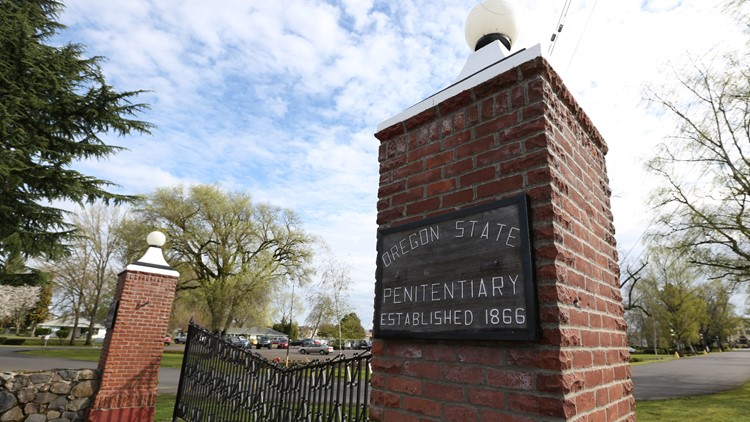SALEM, Ore — Criminal justice reform advocates are taking another crack at passing a law that would compensate wrongfully convicted Oregonians — this time, with the Department of Justice's support.
The Oregon Justice for Exonerees Act, introduced in the 2021 session as Senate Bill 499 and chief-sponsored by senators Kim Thatcher, R-Keizer and Chris Gorsek, D-Troutdale, died in the Ways and Mean Committee.
Representatives from Forensic Justice and Oregon Innocence projects revived the act, currently known as LC 138, and shared updates of the revised draft in a Wednesday hearing with the Senate Interim Committee on Judiciary and Ballot Measure 110 Implementation.
“Oregon is one of 13 states in the country without a compensation statute, and that number is getting smaller and smaller each year as other states pass these bills," said Janis Puracal, executive director of the Forensic Justice Project, a Portland-based organization that works with attorneys to exonerate innocent individuals.
During Wednesday's meeting, Puracal said her organization worked with the Oregon Department of Justice to create a procedure that could work for both exonerees and the state, and improved the bill by using language from existing statutes in other states.
Oregon Department of Justice Communications Director Kristina Edmunson confirmed the department's support for the bill's draft Wednesday.
"This law will make it possible to legally determine who fits in this category of wrongful incarceration," Attorney General Ellen Rosenblum wrote in an email to the Statesman Journal. "Once that determination is made by the court, while financial remuneration is just a start--it is the least we can do to help with re-entry to their communities."
Impact on exonerated
Nationally, about 2,900 now-exonerated men and women were sent to prison, often for decades, by miscarriages of justice, whether due to simple mistakes or corruption by police or prosecutors, according to the National Registry of Exonerations, dating to 1989.
In total, they lost 26,500 years of their lives to wrongful imprisonment, costing the government — local, state and federal — some $3 billion, according to the registry.
Laws in these 13 states require no recompense for the wrongly imprisoned: Alaska, Arizona, Arkansas, Delaware, Georgia, Kentucky, New Mexico, North Dakota, Oregon, Pennsylvania, South Carolina, South Dakota, and Wyoming.
The 37 other states, the federal government and Washington, D.C., do have laws enabling restitution upon release as well as other social or medical services in some states.
LC 138 would mirror statutes recently passed in states such as Idaho, Montana and Kansas, where people who are exonerated get up to $65,000 a year for every year of wrongful imprisonment, according to a bill summary. Plus, individuals would get up to $25,000 for years spent on parole, post-prison supervision or on the sex offender registry.
At least six Kansas exonerees have received compensation awards since the state passed its statute in 2018. Those six exonerees spent a combined 75 years in prison, averaging 12.5 years each, and received a total of $4.2 million in awards, according to the Innocence Project.
Nationally, just under half of the exonerees convicted in states with statutes filed for compensation. Of those who filed, about 74% were successful, 18% lost, and the remaining 8.9% of claims are pending, according to a 2019 study by George Washington University.
DOJ supports exoneree bill draft
Puracal said 13 of 23 existing exonerees in Oregon may be eligible for compensation under the bill. The 13 individuals collectively spent more than 72 years in the Oregon prison system wrongfully.
Nicholas McGuffin, for example, was wrongfully convicted of killing his high school girlfriend in 2000 and spent nine years in prison until he was exonerated by DNA evidence.
"Nick’s daughter was 3 years old when he went in and 12 years old when he got out," Puracal said. "So he missed everything — first day of school, first big game— all of it, for his only child."
And the fight to get exoneration is only half the battle, she added. Many individuals struggle with a criminal conviction on their record despite their innocence.
"What a lot of people don't understand is that the stigma from wrongful conviction lasts a lifetime. They're still fighting to get some to look past the time that they were in prison," Puracal said. "The compensation gives exonerees the acknowledgment that they were wronged, and there's value in that beyond the dollar amount."
If passed, the law would require the exoneree, among different elements of the statute, to prove their innocence in a civil claim.
"Just having a conviction overturned is not enough," including those overturned because of a previous nonunanimous jury verdict, Puracal said. "They must prove that he or she is factually innocent."
Puracal added the bill would balance protecting the exoneree's constitutional rights to civil litigation while ensuring no one is double-dipping on awards.
After filing the claim, the person would have to serve the Department of Justice and the district attorney's office in the county he or she was convicted. The DOJ could agree to the relief or contest the claim.
Puracal said multiple senators, including Thatcher, Gorsek, Floyd Prozanski, D-Eugene, and representatives Janeen Sollman, D-Hillsboro, and Janelle Bynum, D-Clackamas, have already agreed to back the new bill in the upcoming legislative session.
Thatcher said with the draft's refined language, she plans to reintroduce the concept in the upcoming session.
"It helps repair some of the lost trust in our criminal justice system and it injects a good amount of integrity," Thatcher said. "If the state says, 'Oops, we were wrong,' ... what are (wrongfully convicted persons) supposed to do at this point? It's tough to start from zero."
Thatcher said she believes the DOJ's support of the draft "will go a long way in convincing people this is a good thing to do."
"I think it will pass this time," she said.
USA Today Network Midwest criminal justice reporter Eric Ferkenhoff contributed to this story.



